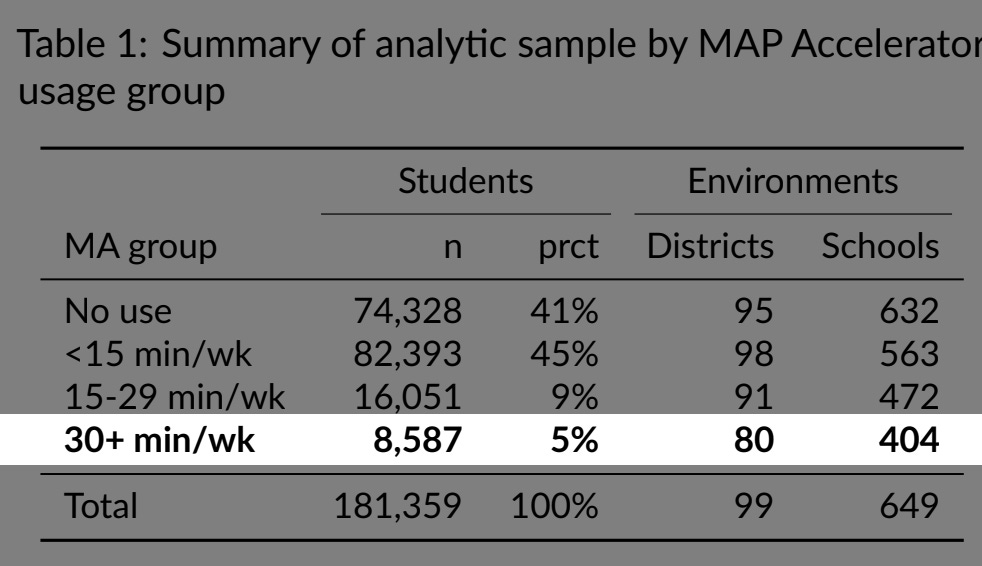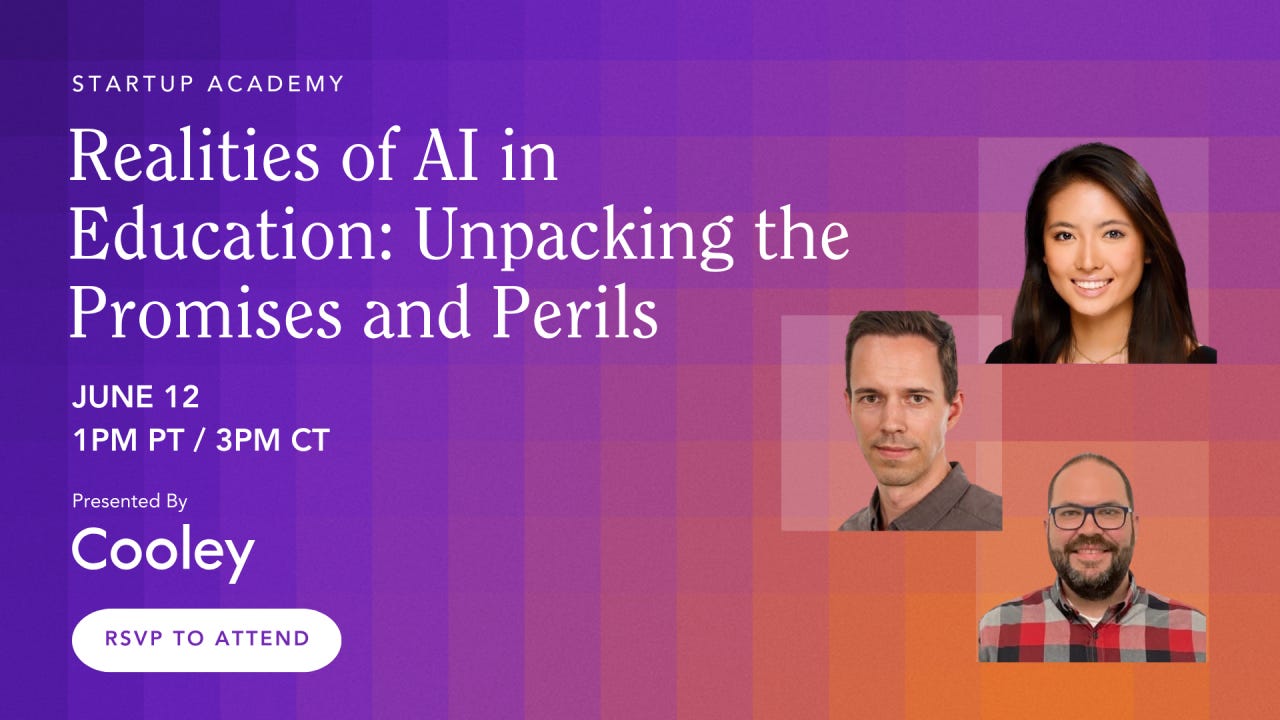Teachers Aren't Your Customer Support Representatives
Sal Khan and yours truly in an interview about AI and personalized learning.
Sal Khan and I feature on the latest Edsurge podcast, “Should Chatbots Tutor? Dissecting That Viral AI Demo With Sal Khan and His Son,” though not at the same time. Different groups have recently been trying to set up a live dialog between Khan and myself about generative AI tutors, but Khan has declined each time, apparently concerned that I would be something less than the total sweetie whose newsletter appears in your inbox every Wednesday.
I’m not saying that’s what happened with this interview, but you do have poor Jeff Young running over to me and asking, “What did you think about that viral AI demo with Sal Khan and his son?” and then running over to Sal Khan with my answer and asking him, “So what do you think about what Dan thought?”
In my answer, I cited Laurence Holt’s 5 Percent Problem essay, which noted that in one of Khan Academy’s biggest efficacy studies, they reported significant academic growth after throwing out 95% of the students who joined the study.
I told Jeff Young:
I’m part of that 5% where I think that pretty much any resource I was given [as a student] I would use at the level that was expected of me and it would be good for me. But there are just vastly more students who are sorting out their place in the world, their place in society and in education. “Who am I? What’s my value?” It’s very hard to separate for those students the cognitive and the social. Both are deeply intertwined and these LLMs, these chatbot tutors, really focus on the cognitive. They honestly I don’t think can focus on the social because the student does not have a social relationship with the LLM.
I passed that note to Jeff who passed it across the classroom to Khan, asking him “Do you agree with Dan? Circle one: yes or no.” Here was Khan’s response:
I generally agree with what Dan is saying. I mean I think most kids would rather chat or talk to their friends than they do many things, than go to school altogether, than sit through a lecture, than do their homework, etc.
Here Khan describes a belief that the social and the cognitive are separable concerns. In this view, students are either in school (cognitive) or at home chatting with their friends (social). They are either eating vegetables or dessert. But 95% of students need experiences that integrate both concerns. They need to know that brussel sprouts taste great when they’re roasted with a maple syrup glaze. They need lessons that teach them about reading, writing, arithmetic, and about the value they and their classmates offer one another.
Khan continues:
I agree that it’s a subset of students, let’s call it 10 or 15% of students, who have maintained their curiosity and might automatically keep going to the AI and for those students this is a field day, this is a playground, this is awesome for them. I think there’s a broader set of students who are broadly disengaged from what they’re doing and you need to figure out ways to engage them more. And this is one of the many reasons why we view involving teachers in this journey is so important.
When Khan talks about our obligation to the 5%, he speaks with first person pronouns. It’s on him. He’s on it. When he talks about our obligation to the 95%, he switches to the second person pronoun. You need to get on it. It’s on you. Specifically, it’s on teachers.
Khan is an extremely effective communicator, but when asked here about the large majority of students who opt out of personalized learning, I think he fumbles badly. His answer badly undermines the core premise of personalized learning. Earlier in the interview, Khan lays out that premise:
In fact, [Khan Academy] is most valuable in a teaching setting because a teacher's in a class of 30, these kids are at all different levels. Every teacher knows that. How do you address their individual needs?
If you are only engaging five students in a class of 30, you are by definition not personalizing learning for the other 25 students. You are not addressing their individual needs. You’re creating more work for teachers, also, treating them like tier-two customer support representatives, asking them to handle whatever problems your technology can’t solve along with whatever problems your technology creates.
Khan and other advocates of personalized learning will frequently disclaim that they aren’t trying to replace teachers. I appreciate that, though I’m worried about that possibility like I’m worried I might medal in the decathlon in the Olympics this summer. I do not, however, appreciate the role they imagine for teachers: a coercive force in the lives of students who need much more and much better support than personalized learning offers them.
Odds & Ends
Join me 🚨later today 🚨at 1PM Pacific as @Ben Kornell and I discuss generative AI, edtech, and more for ASU+GSV’s Startup Academy.




You'll be shocked to know I'm heartily cheering you on here again, Dan.
I'll offer some additional scientific support for your central claim here -- increasingly, cognitive scientists are appreciating (and empirically validating) that our cultural practices are a primary force for *shaping* our cognition, the very mechanisms of how we think are inextricably tied to our social institutions and practices. This is what makes human unique, it's our superpower. Trying to separate them out, treat them as either vegetables or dessert, ends up diminishing the entire quality of the meal.
Nice javelin throw :)
Appreciate your point on teacher POV. Vast difference between:
1. Tackle problem that I (knowingly) made for myself: example, assigning kids a group project, then needing to fix stuff along the way - bad group assignments, lost kids, early finishers, imprecision in assignment.
2. Tackle problem that "you" made for me: "handle whatever problems your technology can’t solve along with whatever problems your technology creates."